Opinion: crashes at Unbound are inevitable, and that’s okay
"Crashes are horrible, but they’re part of the game. If we try to over-regulate Unbound, we risk killing the very thing that makes it special," writes Joe Laverick

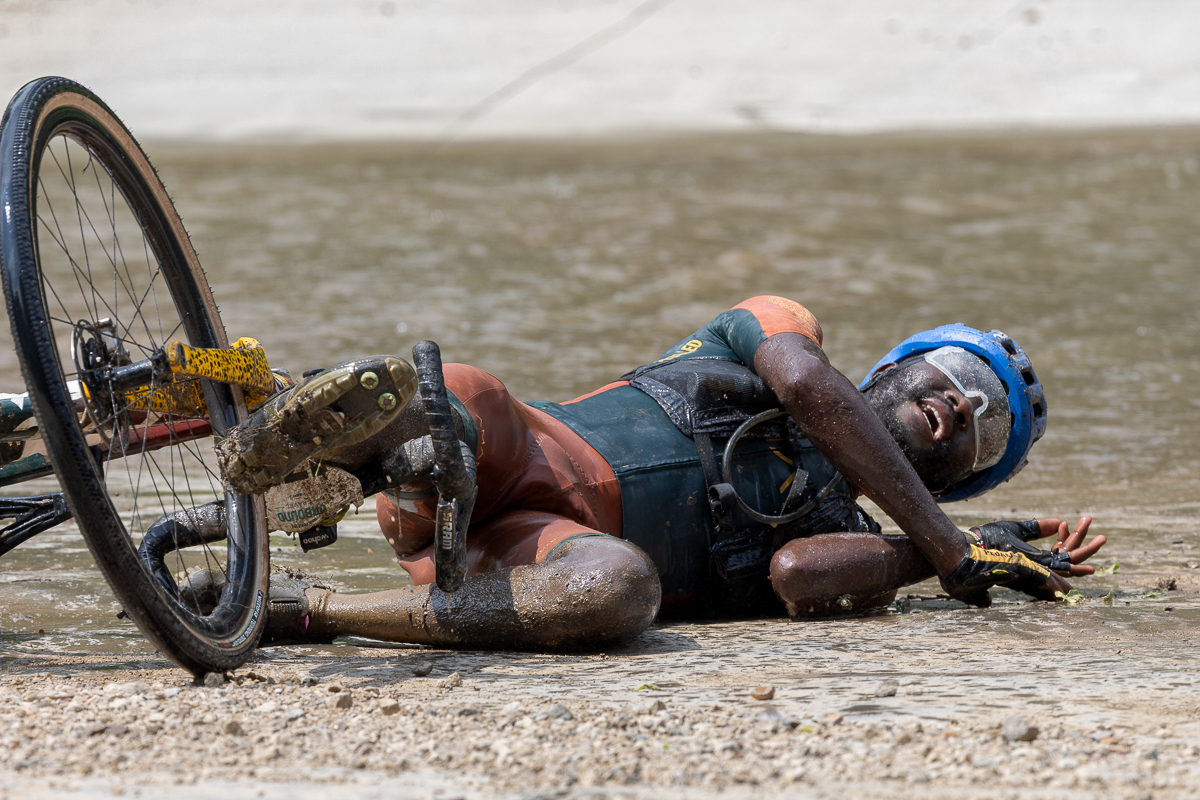
I was in the men’s elite field at Unbound 200 this year. I’m a privateer racer out of the UK, who spends multiple blocks in the U.S. racing each year. This was my third time taking on the beast that is Unbound Gravel. And in my career, I’ve raced everything from Belgian semi-classics to pro stage races and gravel epics. I came through some of the world’s best development teams, and well, I’ve crashed more times than I’d like to remember.
Crashing is an unfortunate but inevitable part of the cycling sport. If you are not willing to accept that, then you shouldn’t be racing bikes at the elite level.
As is often the case at Unbound, criticism, debate and complaints from the pro field began almost the moment tyres crossed the finish line. There had been crashes, perhaps more than usual, and people are questioning whether there should be greater regulation in the race.
Of course, we should make racing as safe as possible, but I’m a realist: bike racing is a dangerous sport. If you set off a group of motivated pro athletes at a race with the pressure and potential rewards of Unbound, then there’s inevitably going to be crashes somewhere.
Unbound is hands-down the biggest, most prestigious gravel race in the World. A win, or even a top-10 finish, here can do wonders for your career. And, new this year, it comes with a lovely payout as well. Any race with this level of pressure, media attention, and potential glory tends to have a lot of crashes. There’s a lot to gain and therefore, risks are taken. It’s no different from what we see at the Tour de France every year.
The pro gravel field seems to be full of opinions and suggestions. In this article, I’m going to look at a few suggestions that have been made and cast my opinion as a racer.
The Feedzones

The two feeds, or pit zones, at Unbound are carnage. There are hundreds of riders going in all different directions, trying to find their crew and get serviced as fast as possible. There are no rules in these pit zones. Riders can service on either side of the road. It’s the Wild West. While I don’t think there were many (or any) crashes here in the elite field, it is a ticking time bomb.
The latest race content, interviews, features, reviews and expert buying guides, direct to your inbox!
This is the one place where regulation makes the most sense.
We saw some riders take musette bags without stopping, others would pull in for a handful of seconds. At aid station two, the Giant team even had one of their helpers riding alongside the pack, passing on bottles. This final one, while perfectly within the rules, is a disgrace, and exactly why there needs to be rules.
The reason riders aren’t willing to stop is because they’re worried another rider will get an advantage.
Every rider must put a foot down in each pit zone. Simple. Solved.
Gravel Categories, or Licenses?
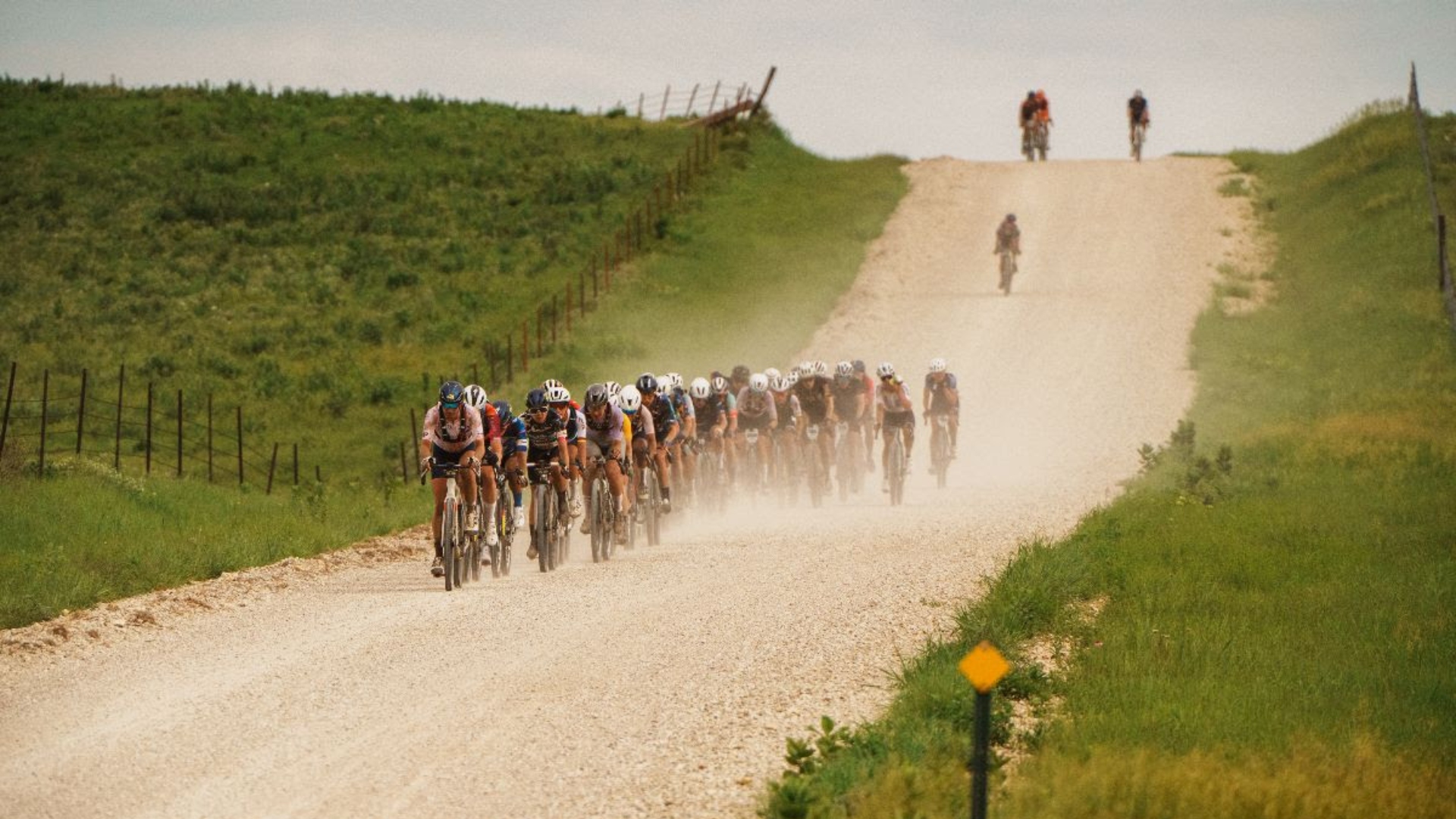
As the gravel discipline has grown and professionalised, many are wondering if perhaps it’s time to have categories or even pro licenses. This is a horrible idea for many reasons. Firstly, it’s impossible to enforce. Gravel is a mass-start event. Meaning, several categories tackle the same course and the same time.
Secondly, it involves creating a system that will almost certainly be unfair or have multiple clauses and asterisks. When has any governing body ever created a fair and proper license system? Thirdly, it’s extremely against the spirit of gravel. I jest, but it’s true.
How would we even decide who gets a license? Is it MTB experience? A pro road background? A test? Good luck defining what makes someone a safe racer. Would Mathieu van der Poel be deemed not safe because he caused a crash at an MTB World Cup? Of course not. Crashes are simply part of the business. Everyone crashes. Everyone causes one eventually.
I come from a road background, which means I’m perfectly at home with five riders surrounding me within a couple of centimetres at any given point. I can happily lean on riders and put my bars in a position to benefit me. However, I couldn’t be further from home on a super technical singletrack.
What if I lean on a rider who is an elite MTBer? Maybe (hypothetically) they’re not as comfortable with pack skills and could react negatively. Does that mean I deserve a license and they don’t?
“But, Unbound shouldn’t be a rider's first gravel race!”I hear you cry. Why not? I’d argue all day long that Unbound is much easier to ride in than even a pro kermesse in Belgium. Why block future talent or hidden gems with some made-up credential?
There’s a degree of irony here. Many big names call for ‘more respect’, but what exactly is ‘respect’? Everyone is on the same start line, so everyone should, in theory, be treated equally.
I’m sorry, but the ‘respect’ argument often just screams entitlement.
As ultra-racer Chris Mehlman succinctly added:
“If somebody [who] a big name doesn’t know causes a crash, it will probably be labelled as ‘bad skills’, or a ‘lack of respect’. However, if a big name causes a crash, then we just accept that’s part of racing. I think the fear amongst top pros is that their season will be ruined by someone they think is a ‘normie’. There is no governing body of gravel, and that’s what a lot of people love. Licensing would require a single governing body for all races, which would hurt the whole experience in numerous other ways.”
Licensing won’t make things safer. It could just give big names more power to define who ‘belongs’ and who doesn’t. Wouldn’t that make gravel more exclusive, the exact thing we’re aiming to avoid?
Field Sizes
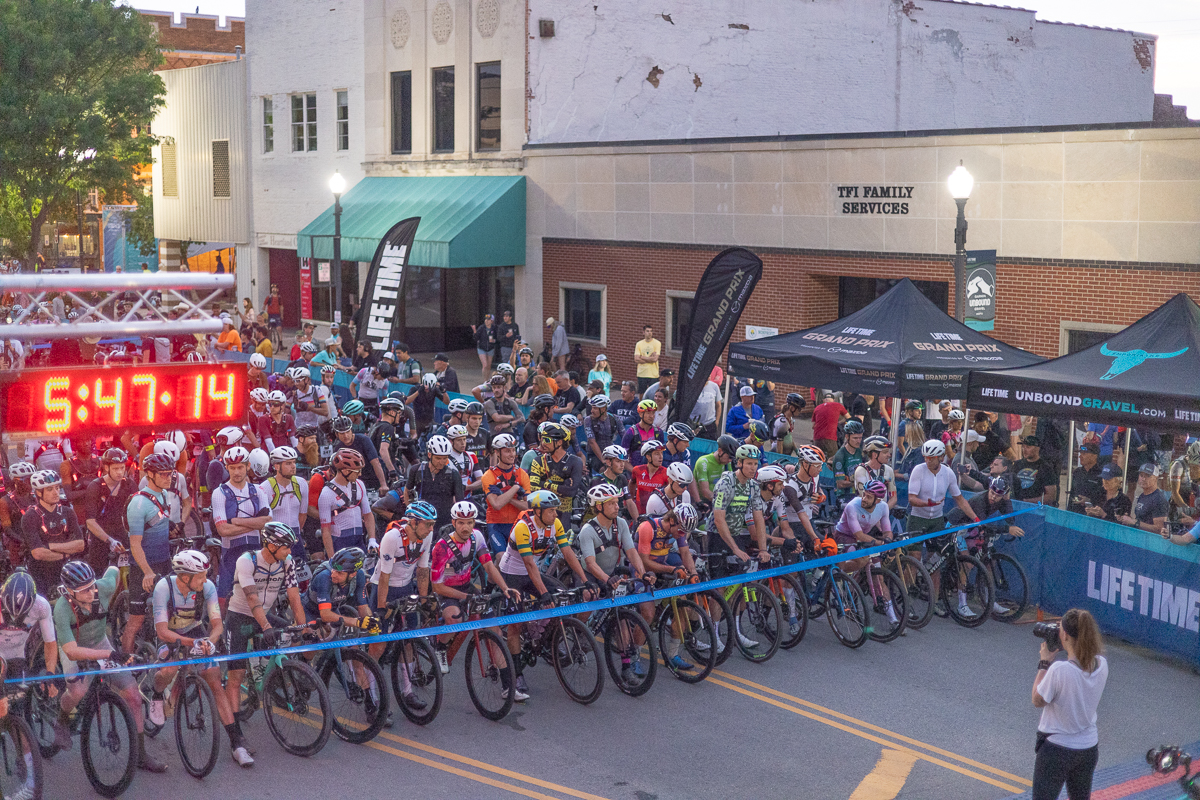
It’s basic maths: more riders mean a greater risk of crashes. We can all agree on that, right?
The 2025 edition of Unbound saw 173 elite men and 93 elite women registered. These are two numbers that are very reasonable. For reference, on the road, the UCI caps startlists at a maximum of 176 riders.
I would be more than happy for the Unbound organisers to cap both the elite races at 200 riders. That seems more than reasonable. However, if crashes aren’t coming from a bloating field size, then the number of riders isn’t the problem.
Last year’s second-place finisher and former WorldTour pro, Chad Haga, commented: “I saw a lot of crashes [in the elite men's race], but all lone riders. Nothing like sprint stage pileups.”
It’s worth asking why the women’s race seemed more crash-prone (this year). That’s not a judgment on skill or safety, it could simply be down to race dynamics. Smaller fields often lead to more surging, less drafting, and less predictability, which can ironically make things sketchier. It’s not about riders being less capable. It’s about how the race unfolds when there’s less structure.
Once again, is this possible to regulate? I think not.
“The Course Isn’t Safe.”
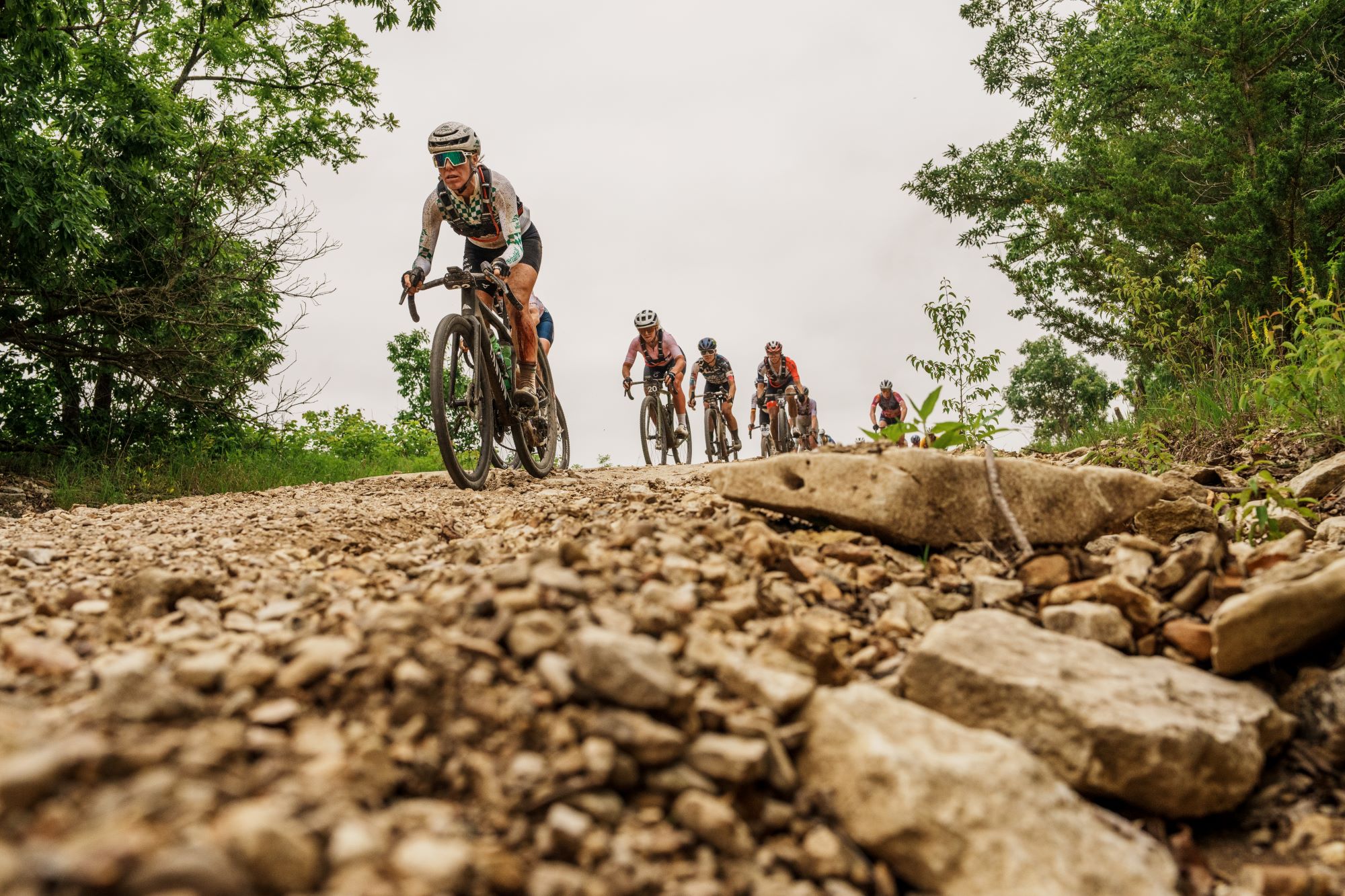
“When Unbound began in 2006, it featured just 34 people on self-supported adventures through the dusty gravel roads of the Flint Hills. It was never intended to be the world’s premier gravel race. It was designed to be an individual pursuit where people tested their personal limits,” rider and journalist Caroline Dezendorf wrote.
Yeah, sorry, I’m not having that argument. Arenberg Forest wasn’t made for racing either. Neither was that insane singletrack at BWR, nor whatever narrow descent in the Tour de France. I agree that it is not safe to race at 50kph into a muddy section like we had at Eskridge in Unbound. But, what are we going to do, put in a speed limit?
There are inherent risks to bike racing at all levels. It doesn’t matter if you’re in a Cat 5 crit, racing the Tour de France, or racing Unbound. Wherever people race bikes, there will always be unavoidable crashes for stupid reasons.
A Note About Medical Assistance

A rider calling ahead to the next aid station
While racers are happy to shoulder the risk that comes with racing, there is also a duty of care that should come from the organiser. As we’ve seen many times, things can go bad very quickly, and when that happens, there has to be a plan in place.
Women’s elite rider Klara Sofie Skovgaard spent 90-minutes injured in a roadside ditch before she received any medical assistance. Once taken to hospital, she underwent surgery for a dislocated, fractured shoulder and an open knee wound. No matter what the small print on the entry forms says, this is unacceptable.
For all distances and all riders, this is where the organisers can improve. Maybe there’s an emergency number on our frame plate that we can call in case of an emergency. Maybe there are medical teams stationed every 20 miles who can act fast. Maybe the lead group of both pro races, where crashes are more likely due to the higher speeds, has a medical motorbike following.
It’s a logistical nightmare trying to figure this out on a course like Unbound, but that’s not an excuse. If you can figure a livestream with a helicopter, you can figure safety protocols in the case of an emergency. It might come at a high cost, but Life Time has the resources.
Conclusion
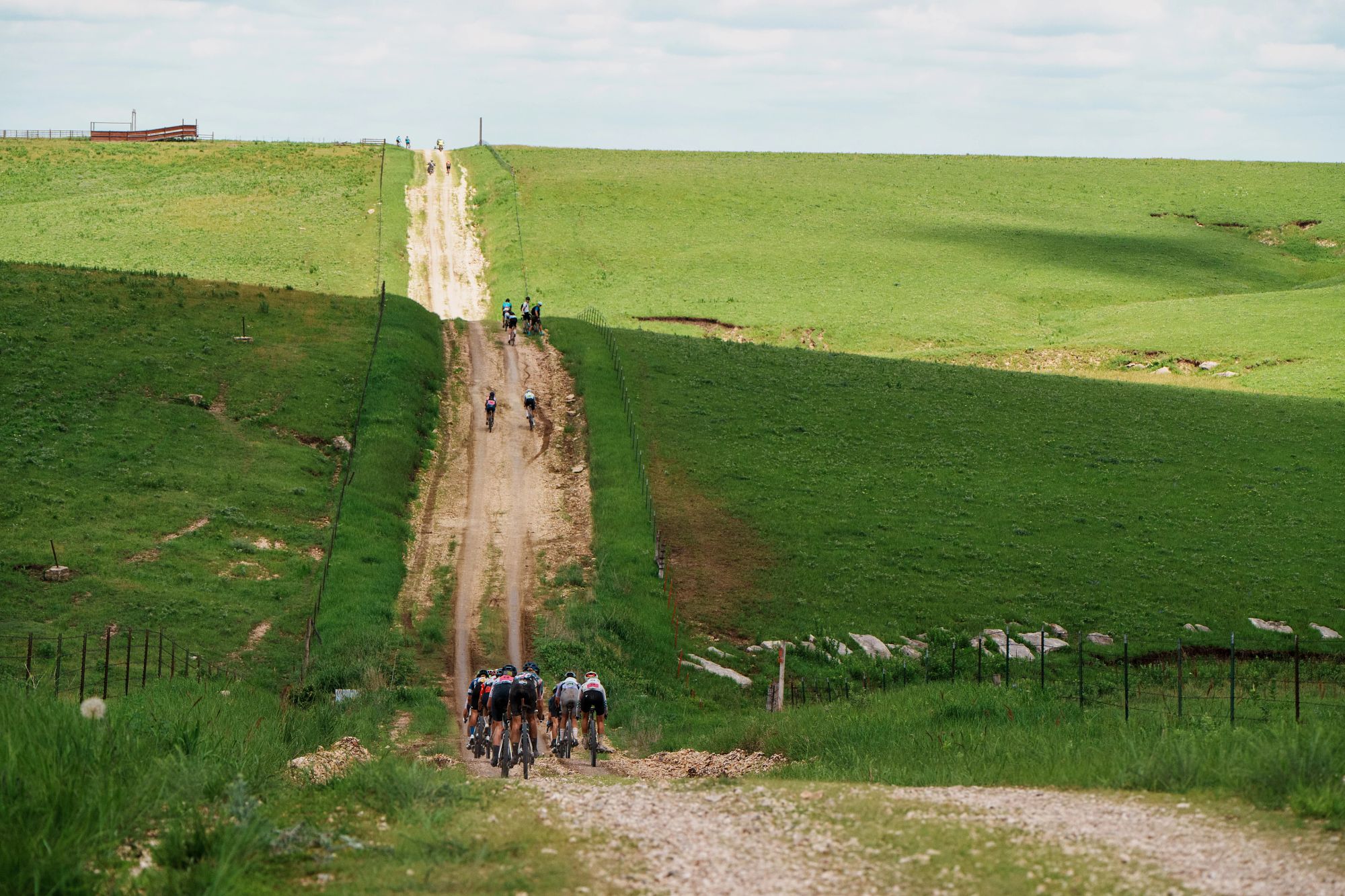
I am as angry and frustrated as anyone else when I am caught in, or injured, by a crash beyond my control. But, if we’re going to start talking about regulation to the levels that some are suggesting, I believe we could create a dangerous precedent.
Crashes are horrible, but they’re part of the game. If we try to over-regulate Unbound, we risk killing the very thing that makes it special. Yes, we should fix the obvious stuff, like enforcing a rule at feed zones and making sure riders get the medical care they need. But trying to gatekeep who gets to race, or sanitise the course, misses the point.
Gravel, nor any bike racing, is supposed to be predictable or perfectly safe. If you want guaranteed safety, ride alone. If you want glory, accept it comes with the risk.
*Slams laptop closed, sits back, sips coffee, and waits for the comments to come.*

Joe Laverick is a professional cyclist and freelance writer. Hailing from Grimsby but now living in Girona, Joe swapped his first love of football for two wheels in 2014 – the consequence of which has, he jokes, been spiralling out of control ever since. Proud of never having had a "proper job", Joe is aiming to keep it that way for as long as possible. He is also an unapologetic coffee snob.
You must confirm your public display name before commenting
Please logout and then login again, you will then be prompted to enter your display name.